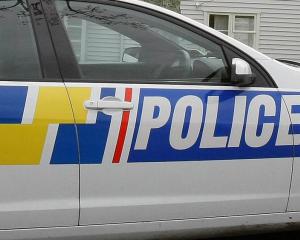"I will be most surprised if there is a basis for compensation," Ms Peart, a partner with Mitchell Mackersy, said.
Aorangi investors have been hard hit since their investments were frozen on the recommendation of the Securities Commission on June 20. Many of those, mainly elderly investors, have been relying on handouts from friends and family to pay their bills as previously, monthly payments from Mr Hubbard's companies were used for that purpose.
Many have been begging banks to free up some money to pay their bills.
The investors had lost income and interest while their funds were frozen.
The Otago Daily Times is aware the statutory manager - Grant Thornton - has paid out $1000 to some investors who were in desperate straits, but most of the money is still locked up.
Ms Peart said the argument would be from the statutory manager that it was acting to protect the funds for the benefit of shareholders, creditors, beneficiaries or just in the public interest as required by the legislation.
Along with Aorangi, seven charitable trusts also had their assets frozen.
The Securities Act provided sanctions if certain provisions had not been met during the investment process, she said.
Those provisions included whether or not an investment statement or a prospectus had been provided and whether those documents had complied with all of the Securities Act requirements, she said.
The Securities Commission was looking at that aspect because it was a complaint from an investor that prompted the intervention by the commission.
Some offers of securities did not require a prospectus because of exemptions available where investors were wealthy or sophisticated.
However, with Aorangi, the investors were "mums and dads" and would never be in that category, Ms Peart said.
If Aorangi remained solvent, it would still be obligated to honour the terms of the investments made when the funds were now longer frozen.
There were concerns the security promised those investors had not been put in place in all cases, which then put at risk Aorangi's ability to enforce loans made with the funds invested, she said.
"If Aorangi goes into liquidation, then investors who are out of pocket will have to look at recovering any shortfall from directors, if they have breached their duties under the Companies Act; or any financial intermediary who may have misrepresented the investment," Ms Peart said.
Meanwhile, brokers are privately expressing their concern about the future for Aorangi if or when it emerges from statutory management. Investors who have had their funds frozen might not want to keep all of their money with Mr Hubbard.
South Canterbury Finance, a company Mr Hubbard founded but which is not associated with statutory management, needs to raise $180 million by the end of the month to comply with the trust deed.
Brokers were worried the Aorangi situation might make investors shy off reinvesting with SCF.



